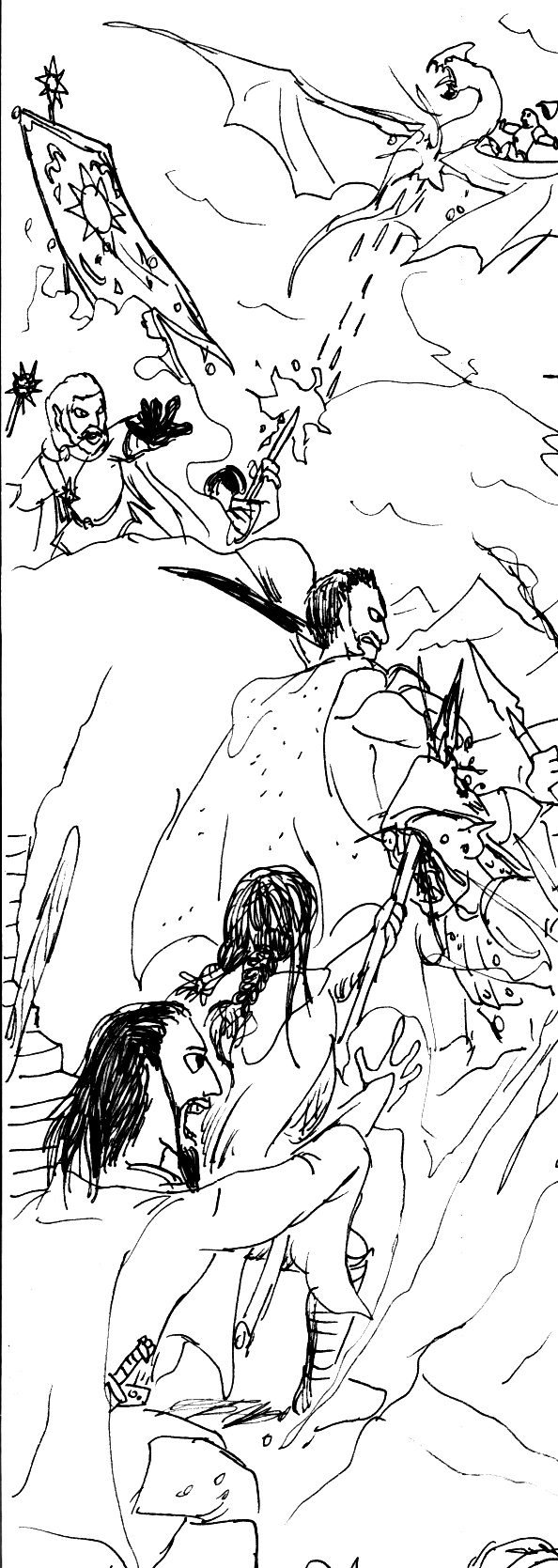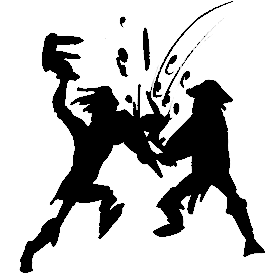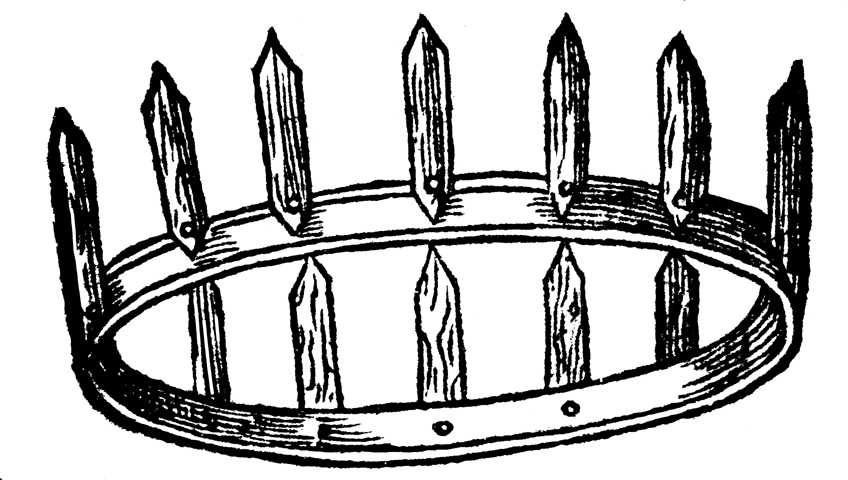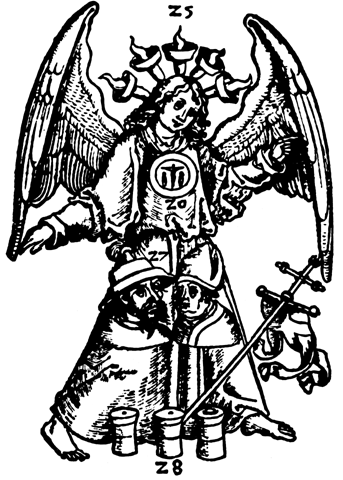#skills
More Magic Rules
Introduction

This article is part of the series where I share parts of my home-brew RPG - Rope, converted to Fudge (of course). I'm doing this to push myself to actually get the conversion done, so I can start running it again in earnest :).
This is a port from my RPG I created before finding Fudge, and has not been tested. If you do use it, I would love to get some feedback on this!
This article depends on several other articles I have written in the past. Please reference them for details on some of the terms in this article:
This article explores more rules around spell casting, allowing the creation of more thematic magic-users, and to be able to have more interesting spell-caster combat.
Detailed Combat rules for Fudge
Introduction

This article is part of the series where I share parts of my home-brew RPG - Rope - converted to Fudge (of course). I'm doing this to push myself to actually get the conversion done, so I can start running it again in earnest :).
As this is a port from my RPG I created before finding Fudge, and has not been tested a lot. I would love to get some feedback on this!
Fudge core rules introduce 3 ways to do combat: Story Elements, Simultaneous Combat and Alternating Combat. All these are quite generic and lack a bit of crunch and tactical elements that many other RPG systems provide. These rules resemble Alternating combat the most, and aim to provide the option for GMs who prefer a bit more detail in combat, with special moves and potentially multiple actions etc.
Item Crafting - Creating magical items in Fudge
Introduction

This article is part of the series where I share parts of my home-brew RPG - Rope - converted to Fudge (of course). I'm doing this to push myself to actually get the conversion done, so I can start running it again in earnest :).
As this is a port from my RPG I created before finding Fudge, and has not been tested a lot. I would love to get some feedback on this!
This system uses the Fudge Tasks and Spell Crafting from my previous posts. I recommend reading them first to understand the actual Item Crafting mechanic.
More options to Fudge on the Fly
Introduction

This is a short one, it's basically a small adjustment to Fudge on the Fly Option #2. It's all based on Fudge on the Fly by Rob Donoghue and I will assume that you are familiar with it.
I also use Option #1: Stats, and will extend Option 3 to them too.
Skill Training for Fudge
Introduction
This article is part of a new series where I share parts of my home-brew RPG - Rope - converted to Fudge (of course). I'm doing this to push myself to actually get the conversion done, so I can start running it again in earnest :).
As this is a port from my RPG I created before finding Fudge, and has not been tested a lot. I would love to get some feedback on this!
Often Characters find themselves having down time, either being between sessions or else are waiting on their journey to come to an end, etc. When there is nothing else to do characters can spend this time in training. Characters might also want to learn new skills and will go out of their way to seek out masters of certain rare skills and petition the masters to teach them.
All of that is covered in this article.
Fudge Shape-shifting
Introduction

These rules build on Fudge Tasks and A new damage system for Fudge I assume that the reader has read these article first.
This article is part of a new series where I share parts of my home-brew RPG - Rope - converted to Fudge (of course). I'm doing this to push myself to actually get the conversion done, so I can start running it again in earnest :).
As this is a port from my RPG I created before finding Fudge, and has not been tested a lot. I would love to get some feedback on this!
These shape-shifting rules apply to both voluntary and involuntary shape-shifting. The only difference is the trigger. In case of involuntary (like that of a Werewolf at full moon) the Character can try to resist the shape-shift but if they fail then these shape-changing rules apply.
Sisu - A new Fudge Attribute
Introduction
This is the fourth and final article I had planned for the Fudge Compendium. I actually wrote it to be a Fudge conversion of the Nature attribute in the Mouse Guard RPG. Here I present it as a generic system that can be used as a replacement of using a fudge point to take a +4 on dice for an unopposed roll.
Sisu is a Finnish concept described as stoic determination, tenacity of purpose, grit, bravery, resilience,[1][2] and hardiness[3][4] and is held by Finns themselves to express their national character. It is generally considered not to have a literal equivalent in English.
—“Sisu - Wikipedia, the free encyclopedia.” May. 1st 2020 http://en.wikipedia.org/wiki/Sisu
Sisu is a bit different from the other regular attributes. It measures how well the character can overcome obstacles and persevere in the face of hardship. It also measures how well the character can handle mental strain and recovery of said strain. The less Sisu he has the more meek he becomes and will be more likely to crumble beneath the strain that is life.
Fudge Tasks
While this is not officially one of the articles that was sent for the Fudge Compendium it is the core rules of one of the mechanics for my next post. Meanwhile enjoy this generic system for dealing with lengthy actions.
Introduction - Anatomy of a Task
A task is a skill resolution that takes more than one turn. Some examples are creating artwork, casting a spell, research, picking locks and more. The GM assigns a Task Value and a Task Turn along with a Task Difficulty to the task, and the character will try to gain enough Task Points to complete the task. Every Task Turn the character can gain more Task Points.
Fudge Social Combat
by Douglas Weber. Published originally to Fudge Factor.
Why let the sword swingers and gunmen get all the screen time? With the Social Combat rules, you can Bluff, Charm, Intimidate, Impress, and Persuade your way through the world with all the detail and suspense of physical combat.
Experience-Free Skill Advancement
by Edward Beingessner. Published originally to Fudge Factor.
In a long running campaign, character improvement is essential, but as Steffan O'Sullivan points out in his "Recent Thoughts on Fudge", experience points do not work very well in Fudge. Advancement is too granular, either too quick or too slow. In fact experience points in any gaming system seem misdirected. With most experience systems, there is no relation between what the character does during the game and how he advances. There is a relation with how fast a character advances, but not what skills he advances in. For example, in the AD&D experience system a thief could gain all his experience back-stabbing monsters. Then when he gets his next level, he can suddenly climb walls better. It does not seem to follow. The same problem arises in the GURPS system. You get points to improve your character, but can use them to buy skills never used. For example, a character who was awarded character points for slaying a dragon could use them to buy a skill in picking locks.
Fudge on the Fly
by Rob Donoghue. Published originally to Fudge Factor. (I didn't manage to hear back from Mr. Donoghue, but reproducing this here for convenience since I have posts that expand on Fudge on the Fly.
Fudge on the Fly is a method of character generation that allows games to begin immediately, with only a few moments required for character generation. It does this by allowing players to select their character's skills during play, when the situation arises which calls for them. This has a number of benefits in addition to its speed - most notably it spares players the annoyance of failing to purchase the "right" skills. Every skill purchased will be one that proves itself useful during play. The revelation of character skills over the course of play also allows for the same sort of character discovery that is common in books and film.


 Source on gitlab
Source on gitlab